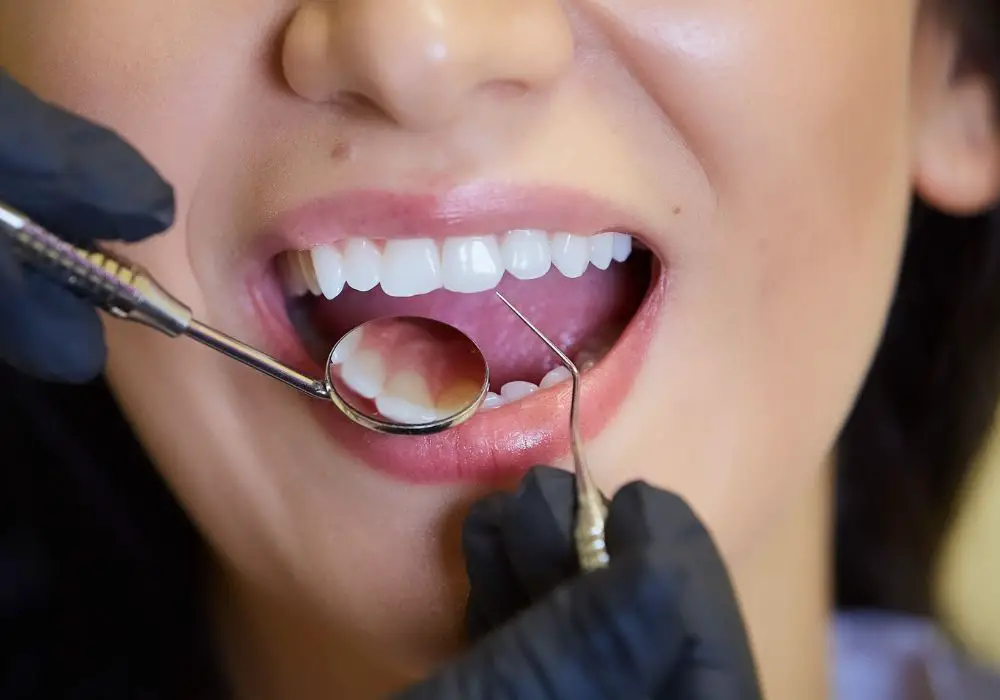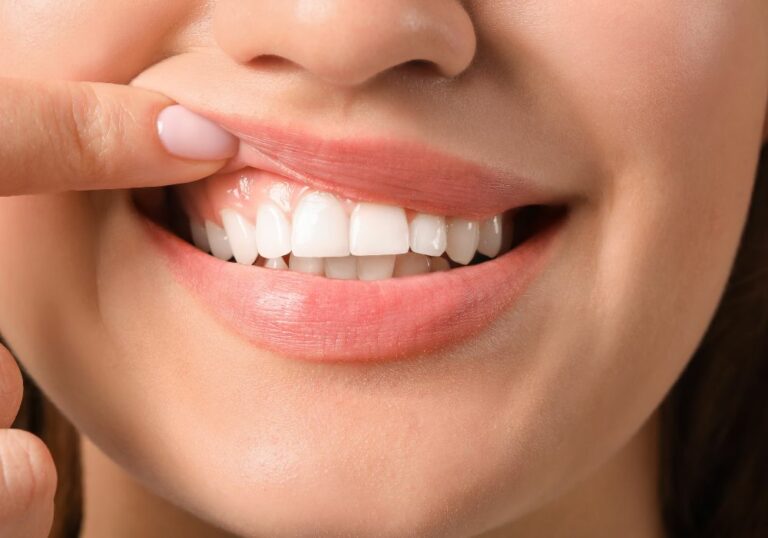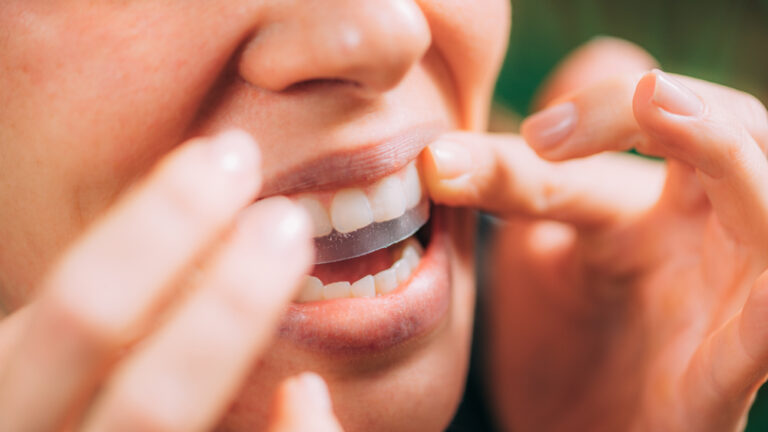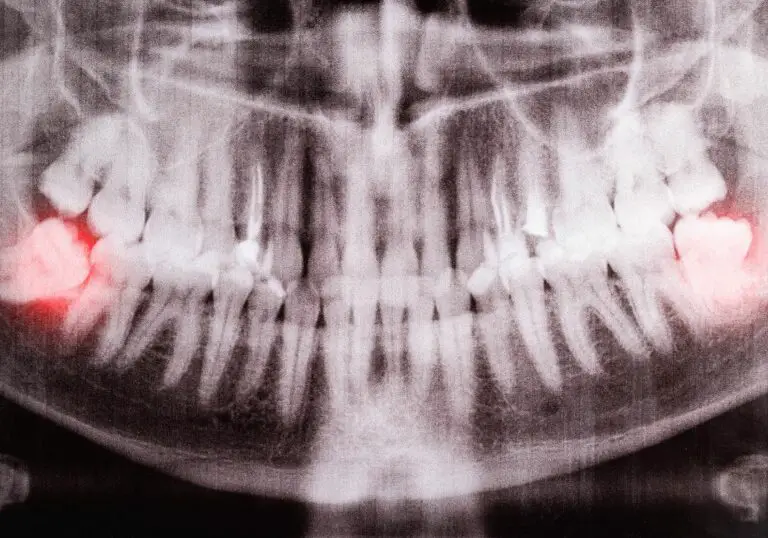Are teeth due to genetics? It’s a question that many people wonder about. While some dental issues are caused by poor oral hygiene or environmental factors, others are largely determined by genetics. In fact, research has shown that certain dental conditions are highly heritable, meaning that they are passed down from one generation to the next.
For example, conditions such as hypodontia and oligodontia, which involve the absence of one or more teeth, are largely genetic. Additionally, tooth development begins at about 30 days in the gestational process and typically ends by age 19, when wisdom teeth erupt. During this period, developmental abnormalities can occur that may be inherited from parents. However, it’s important to note that genetics is not the only factor that influences dental health. Other factors such as diet, lifestyle, and oral hygiene practices also play a role.
Understanding the role of genetics in dental health is important for both individuals and healthcare providers. By knowing your family history and potential genetic risks, you can take steps to prevent dental issues and maintain good oral health. Additionally, healthcare providers can use this information to provide personalized care and treatment plans for their patients.
Understanding Genetics

Genetics is the study of genes, which are the basic units of heredity. Genes are made up of DNA and determine various traits, such as eye color, height, and susceptibility to certain diseases.
When it comes to oral health, genetics can play a role in determining the shape and size of your teeth, as well as the strength of your tooth enamel. However, genetics alone do not determine the state of your oral health. Environmental factors, such as diet, lifestyle, and dental hygiene habits, also play a significant role.
It is important to note that many common oral health issues, such as cavities and gum disease, are not solely caused by genetics. In fact, no gene has been identified to have as large an impact on periodontal disease as environmental factors like smoking or diabetes.
While genetics can influence your oral health, it is not a predetermined fate. Proper dental hygiene, regular check-ups with your dentist, and a healthy lifestyle can help prevent and manage oral health issues regardless of your genetic makeup.
In summary, genetics can play a role in determining certain aspects of your oral health, but it is not the only factor. Maintaining good dental hygiene habits and a healthy lifestyle can help prevent and manage oral health issues, regardless of your genetic makeup.
Role of Genetics in Teeth Development
Teeth are an essential part of the human body, and their development is a complex process that involves both genetic and environmental factors. While environmental factors such as diet and oral hygiene play a crucial role in teeth development, genetics also plays a significant role. In this section, we will explore the genetic influence on tooth size, tooth number, and tooth shape.
Genetic Influence on Tooth Size
The size of teeth is determined by various genetic factors. Studies have shown that genes play a significant role in determining the size of the teeth, including both the width and the length. For example, mutations in the MSX1 and PAX9 genes have been linked to smaller tooth size, while mutations in the BMP4 gene have been linked to larger tooth size.
Genetic Role in Tooth Number
The number of teeth a person has is also determined by genetics. In most cases, humans have 32 teeth, but some people may have fewer or more teeth due to genetic factors. For example, mutations in the AXIN2 gene have been linked to missing teeth, while mutations in the EDAR gene have been linked to extra teeth.
Genetic Impact on Tooth Shape
The shape of teeth is also influenced by genetics. The genes responsible for tooth shape are involved in the development of the enamel, dentin, and pulp of the teeth. For example, mutations in the ENAM gene have been linked to abnormal tooth shape, while mutations in the DSPP gene have been linked to abnormal dentin formation.
In conclusion, genetics plays a significant role in teeth development, including tooth size, tooth number, and tooth shape. While environmental factors such as diet and oral hygiene are also crucial, understanding the genetic factors that influence teeth development can help dentists and orthodontists provide better treatment options for their patients.
Genetic Dental Disorders

If you have ever wondered why you have certain dental problems, it may be due to your genetics. There are several genetic dental disorders that can affect your teeth, gums, and overall oral health. Here are two common genetic dental disorders:
Amelogenesis Imperfecta
Amelogenesis Imperfecta is a genetic disorder that affects the development of tooth enamel. People with this disorder have teeth that are weak and prone to damage, discoloration, and decay. In some cases, the teeth may also be smaller than normal or have an abnormal shape.
There are four main types of Amelogenesis Imperfecta, each with different symptoms and severity. Here are the four types and their characteristics:
- Hypoplastic: Enamel is thin and weak, causing teeth to be discolored and prone to damage.
- Hypomaturation: Enamel is soft and easily damaged, causing teeth to be discolored and prone to decay.
- Hypocalcified: Enamel is thin and soft, causing teeth to be discolored and prone to decay.
- Mixed: A combination of the above types.
There is currently no cure for Amelogenesis Imperfecta, but treatments such as dental bonding and crowns can help improve the appearance and strength of affected teeth.
Dentinogenesis Imperfecta
Dentinogenesis Imperfecta is a genetic disorder that affects the development of tooth dentin. People with this disorder have teeth that are discolored, weak, and prone to damage and decay. The teeth may also be smaller than normal or have an abnormal shape.
There are three main types of Dentinogenesis Imperfecta, each with different symptoms and severity. Here are the three types and their characteristics:
- Type I: Teeth are discolored, weak, and prone to damage and decay.
- Type II: Teeth are severely discolored, weak, and prone to damage and decay. The roots of the teeth are also shorter than normal.
- Type III: Teeth are severely discolored, weak, and prone to damage and decay. The roots of the teeth are also shorter than normal, and affected individuals may also have hearing loss.
There is currently no cure for Dentinogenesis Imperfecta, but treatments such as dental bonding and crowns can help improve the appearance and strength of affected teeth.
If you suspect that you may have a genetic dental disorder, it is important to speak with your dentist. They can help diagnose the disorder and recommend appropriate treatments to improve your oral health.
Environmental Factors Affecting Teeth
Your genes are not the only factor that determines the health of your teeth. Environmental factors, such as your diet and oral hygiene habits, also play a significant role in the development and maintenance of your teeth.
One of the most important environmental factors that affect your teeth is your diet. A diet high in sugar and carbohydrates can lead to tooth decay, as the bacteria in your mouth feed on these substances and produce acid that erodes your tooth enamel. A diet that is low in calcium and vitamin D can also weaken your teeth and make them more susceptible to decay and other dental problems.
Your oral hygiene habits are another important environmental factor that affects your teeth. Brushing and flossing regularly can help remove plaque and prevent tooth decay and gum disease. However, if you don’t brush and floss properly, or if you don’t do it often enough, plaque can build up on your teeth and lead to dental problems.
Other environmental factors that can affect your teeth include:
- Smoking: Smoking can stain your teeth and increase your risk of gum disease and oral cancer.
- Alcohol: Drinking alcohol can dry out your mouth, which can lead to tooth decay and gum disease.
- Medications: Some medications can cause dry mouth, which can increase your risk of tooth decay and gum disease.
- Trauma: Trauma to your teeth, such as from a sports injury or car accident, can cause them to become loose or fall out.
In summary, while genetics do play a role in the development of your teeth, environmental factors such as your diet, oral hygiene habits, smoking, alcohol consumption, medication use, and trauma can also have a significant impact on the health of your teeth. By taking care of your teeth and practicing good oral hygiene habits, you can help prevent dental problems and maintain a healthy, beautiful smile.
Teeth Genetics in Twins

If you have a twin, you might wonder whether your teeth are due to genetics. Studies have shown that genetics play a significant role in the development of dental anomalies. In particular, twin studies have revealed that tooth crown dimensions, especially buccolingually and mesiodistally, are genetically determined.
One study found that monozygotic twins (identical twins) had more similar dental arch widths than dizygotic twins (fraternal twins). This suggests that genetics play a larger role in dental arch width than environmental factors.
Another study found that the heritability of mandibular prognathism (a condition where the lower jaw protrudes forward) was estimated to be around 0.7, indicating a strong genetic component.
However, it’s important to note that genetics is not the only factor that influences dental development. Environmental factors such as nutrition, oral hygiene, and habits like thumb-sucking can also affect the growth and development of teeth.
Overall, while genetics do play a role in dental development, it’s important to maintain good oral hygiene and seek regular dental check-ups to ensure the health and longevity of your teeth.
Future Research in Dental Genetics
As research in dental genetics continues to advance, there are several areas that scientists are focusing on to enhance our understanding of the genetic basis of dental anomalies. Here are some areas of future research in dental genetics:
Identification of Additional Genes
While there have been significant advances in identifying genes associated with dental anomalies, there is still much to learn. Scientists are continuing to search for additional genes that play a role in tooth development and oral health. This will help us better understand the complex genetic mechanisms that underlie dental anomalies.
Gene-Environment Interactions
While genetics plays a significant role in tooth development and oral health, environmental factors also play a crucial role. Scientists are working to identify how genetic and environmental factors interact to influence oral health outcomes. Understanding these interactions will help us develop more effective prevention and treatment strategies.
Personalized Treatment Approaches
As we gain a better understanding of the genetic basis of dental anomalies, we will be able to develop more personalized treatment approaches. This may involve identifying specific genetic mutations that contribute to a patient’s dental anomalies and tailoring treatment to address those specific mutations.
Genetic Testing
As genetic testing becomes more widely available, it may become possible to identify individuals who are at increased risk for certain dental anomalies. This information could be used to develop personalized prevention and treatment plans to help individuals maintain optimal oral health.
In conclusion, future research in dental genetics holds great promise for improving our understanding of the genetic basis of dental anomalies and developing more effective prevention and treatment strategies.
Frequently Asked Questions
Are dental problems primarily caused by genetics?
While genetics can play a role in dental health, dental problems are not primarily caused by genetics. Environmental factors such as diet, oral hygiene, and lifestyle choices can have a significant impact on dental health.
What are some genetic disorders that affect dental health?
There are several genetic disorders that can affect dental health, such as Amelogenesis Imperfecta, Dentinogenesis Imperfecta, and Ectodermal Dysplasia. These disorders can cause issues such as weak enamel, discoloration, and missing teeth.
Can genetics play a role in tooth decay?
Genetics can make some individuals more susceptible to tooth decay, but it is not the sole cause. Factors such as diet and oral hygiene also play a significant role in the development of tooth decay.
Is there a genetic component to crooked teeth?
Yes, genetics can play a role in the development of crooked teeth. However, environmental factors such as mouth breathing, thumb sucking, and tongue thrusting can also contribute to crooked teeth.
How much of a role does genetics play in dental health?
While genetics can play a role in dental health, it is not the only factor. Environmental factors such as diet, oral hygiene, and lifestyle choices can have a significant impact on dental health.
Can bad genetics be blamed for bad teeth?
It is not accurate to blame bad genetics for bad teeth. While genetics can play a role in dental health, environmental factors such as diet, oral hygiene, and lifestyle choices are equally important. Good oral hygiene habits and regular dental check-ups can help maintain good dental health regardless of genetics.







